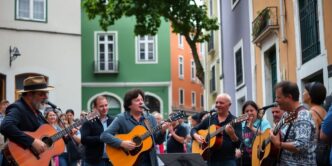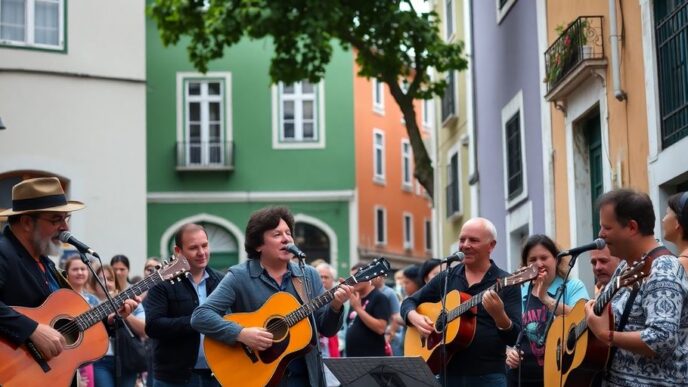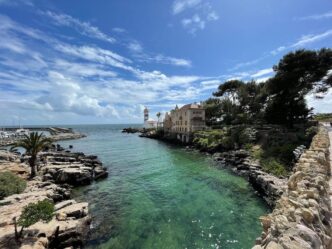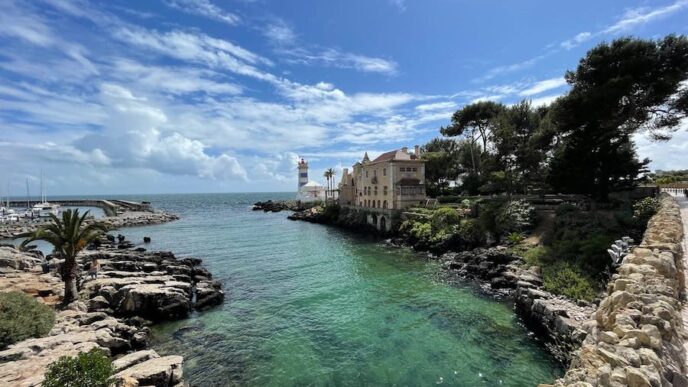The Evolution of RTP: From Radio Pioneers to Multimedia Giants
The Birth of Portuguese Public Broadcasting
RTP, Rádio e Televisão de Portugal, stands as a cultural beacon for the Portuguese, encompassing a rich and diverse universe of television, radio, and online brands. As a public service broadcaster, RTP has been pivotal in shaping the media landscape of Portugal since its inception. The organisation’s commitment to quality and diversity is evident in both its radio and television offerings, as well as the content it provides online.
Key figures in RTP’s history include iconic personalities and programs that have left an indelible mark on Portuguese culture, including:
- Amália Rodrigues: The revered fado singer’s programs brought the soulful sounds of Portugal to the masses.
- 25 de Abril: RTP’s coverage of the Carnation Revolution played a crucial role in documenting this pivotal moment in Portuguese history.
Controversies have occasionally surfaced, but the broadcaster has consistently worked to maintain public trust. Today, RTP continues to innovate with platforms like RTP Play, offering a plethora of content, from the daily news program ‘Bom Dia Portugal’ to the comedic skits of ‘Donos Disto Tudo’.
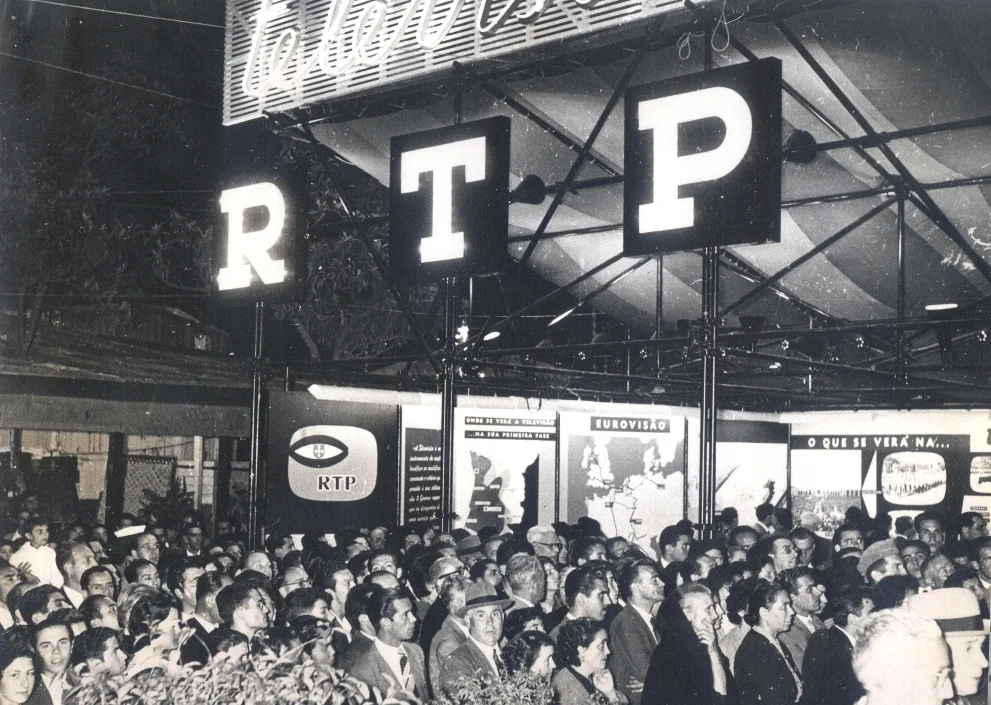
The current lineup of presenters and programs reflects RTP’s ongoing dedication to education, culture, and entertainment. Shows like ‘5 Para a Meia-Noite‘ with Gilmário Vemba and the informative ‘RTP Ensina’ cater to diverse audiences, while ‘RTP Arena eSports’ and ‘RTP Palco’ highlight the broadcaster’s adaptation to modern trends.
RTP’s evolution from a radio pioneer to a multimedia giant is a testament to its enduring relevance and its ability to adapt to the changing media environment, all while staying true to its mission of serving the Portuguese public.
Expansion into Television and the Digital Age
Following its establishment in December 1955, RTP (R\u00e1dio e Televis\u00e3o de Portugal) quickly became a cornerstone of Portuguese media. Test broadcasts began in September 1956, marking the start of a new era in public broadcasting. The transition into television was a significant milestone, and RTP has since evolved into a multimedia giant, embracing the digital transformation that has reshaped the industry.

Key Figures and Entities in RTP’s History:
- Most Important People: RTP’s leadership and visionary figures have been instrumental in its growth. Names like Jos\u00e9 Hermano Saraiva, a historical consultant, and Ant\u00f3nio Tabucchi, a program contributor, are etched in its legacy.
- Iconic Programs: ‘Telejornal,’ RTP’s flagship news program, and ‘Festival da Can\u00e7\u00e3o,’ the national selection for the Eurovision Song Contest, have become cultural staples.
- Controversies: RTP has not been immune to controversy, with debates often centered around funding and political influence.
- Stations: RTP operates several television and radio stations, including RTP1, RTP2, and Antena 1, each serving diverse audiences.
- Prominent Presenters: Presenters like Catarina Furtado and Filomena Cautela are among the current faces of RTP, bringing a mix of experience and innovation to the screen.
As RTP continues to navigate the digital landscape, it remains committed to its public service mandate, while also exploring new avenues such as RTP Play, its online streaming platform. The broadcaster’s ability to adapt and innovate ensures that it remains a vital part of Portugal’s audiovisual identity.
Technological Innovations and RTP Play
RTP, Portugal’s premier public broadcasting entity, has been at the forefront of media innovation since its inception. From its early days as a radio pioneer, RTP has evolved into a multimedia giant, embracing the digital revolution with open arms. The launch of RTP Play, an online platform, marked a significant milestone in the broadcaster’s history, offering a plethora of content ranging from live broadcasts to a rich archive of past programs.
Key figures in RTP’s history include visionaries and leaders who have shaped its direction. Among the most influential have been:
- José Hermano Saraiva , a renowned historian and presenter of the iconic program ‘Historia de Portugal’
- Maria Elisa, one of RTP’s most distinguished journalists and presenters
- Júlio Isidro, a television presenter with a career spanning over five decades
RTP has not been without its controversies, often reflecting the tumultuous political landscape of Portugal. However, it has consistently played a pivotal role in shaping public opinion and national identity.
The network’s stations, such as Antena 1, RTP1, and RTP Internacional, have been instrumental in delivering diverse content to Portuguese-speaking audiences worldwide. Today, RTP continues to innovate, with RTP Play serving as a testament to its commitment to accessibility and modernity.
RTP’s journey from a national radio broadcaster to a multimedia powerhouse demonstrates its unwavering dedication to technological advancement and audience engagement.
As RTP marches forward, it remains a beacon of culture, education, and entertainment, continually adapting to the ever-changing media landscape.
RTP’s Commitment to Education, Culture, and Entertainment

RTP Ensina: Educational Outreach and Online Resources
RTP has been a cornerstone of Portuguese media since its inception. As a public service broadcaster, RTP has evolved to meet the educational needs of its audience through initiatives like RTP Ensina. This platform offers a wealth of online resources, catering to students, teachers, and the general public, aiming to educate and inform.
Key figures in RTP’s history include iconic presenters such as Maria Elisa and Jos\u00e9 Rodrigues dos Santos, and influential directors like Almerindo Marques. RTP’s programming has been marked by groundbreaking shows liike ‘Conta-me Como Foi’, as well as the satirical ‘Contra Informação’. The broadcaster has also faced its share of controversies, often related to programming decisions or internal politics.
RTP operates several stations, with RTP1 and RTP2 being the main television channels, and Antena 1, Antena 2, and Antena 3 as its primary radio stations. Today, RTP continues to innovate with RTP Play, offering on-demand content, and RTP Arena, which delves into the world of eSports. The commitment to diverse programming is evident in offerings like RTP Palco, which showcases performing arts.
The Virtual Museum and RTP Archives: Preserving History
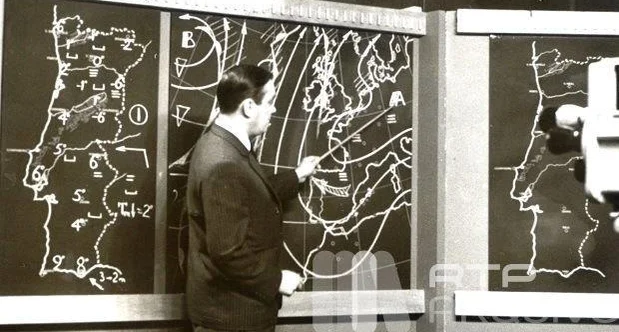
RTP, Rádio e Televisão de Portugal, has been a cornerstone of Portuguese media since its inception. As a public service broadcaster, RTP has played a pivotal role in shaping the cultural landscape of the nation. The organisation’s commitment to preserving its rich history is evident through initiatives like the RTP Virtual Museum and the extensive RTP Archives, which offer a window into the broadcaster’s storied past.
Key figures in RTP’s history include iconic presenters such as Maria Elisa, José Rodrigues dos Santos, and Jorge Gabriel, who have become household names in Portugal. The broadcaster has also been home to influential programs like ‘Telejornal,’ the long-running news program, and ‘O Preço Certo,’ a popular game show. RTP’s stations, including RTP1, RTP2, and the international RTP Internacional, have provided diverse content to audiences both domestically and abroad.
Controversies have occasionally marked RTP’s history, reflecting the broadcaster’s role in a changing society. However, RTP has consistently worked to address these challenges and evolve with the times. Today, RTP continues to innovate with platforms like RTP Play, offering digital streaming of their content.
RTP’s legacy is not just in the content it has produced but also in the memories it has created for generations of Portuguese viewers and listeners. Its archives not only preserve these memories but also serve as a testament to the broadcaster’s enduring relevance and contribution to Portuguese media and culture.
RTP’s Role in Major National Events and Celebrations
As Portugal’s premier public service broadcaster, Rádio e Televisão de Portugal (RTP) has been at the forefront of covering major national events and celebrations since its inception. Established in the 1930s as a radio broadcaster, RTP expanded into television in the 1950s, becoming a staple in Portuguese households. Over the years, RTP has played a pivotal role in uniting the nation during significant moments, from historical milestones to cultural festivities.
- Festival da Canção: RTP’s annual music competition has been instrumental in selecting Portugal’s entry for the Eurovision Song Contest. It has launched the careers of many Portuguese artists and remains a beloved tradition.
- Presidential and Parliamentary Elections: RTP provides comprehensive coverage, ensuring the public is well-informed about the democratic process.
- National Day Celebrations: RTP broadcasts Portugal Day and other patriotic events, showcasing the country’s rich heritage.
- Sports Events: From football championships to the Olympics, RTP brings live sports action to Portuguese viewers.
RTP’s influence extends beyond event coverage. It has been home to some of the most influential figures in Portuguese media:
- Presenters: Names like José Rodrigues dos Santos and Catarina Furtado are synonymous with RTP’s quality broadcasting.
- Programs: Shows such as ‘Telejornal’ and ‘Prós e Contras’ have sparked national conversations.
- Controversies: RTP has not been immune to controversy, often related to programming decisions or political pressures.
- Stations: With a network of television and radio stations, including RTP1, RTP2, and Antena 1, RTP reaches a diverse audience.
Today, RTP continues to innovate with platforms like RTP Play, offering on-demand content to a global audience. Its commitment to public service broadcasting ensures that RTP remains a vital part of Portugal’s cultural landscape.






